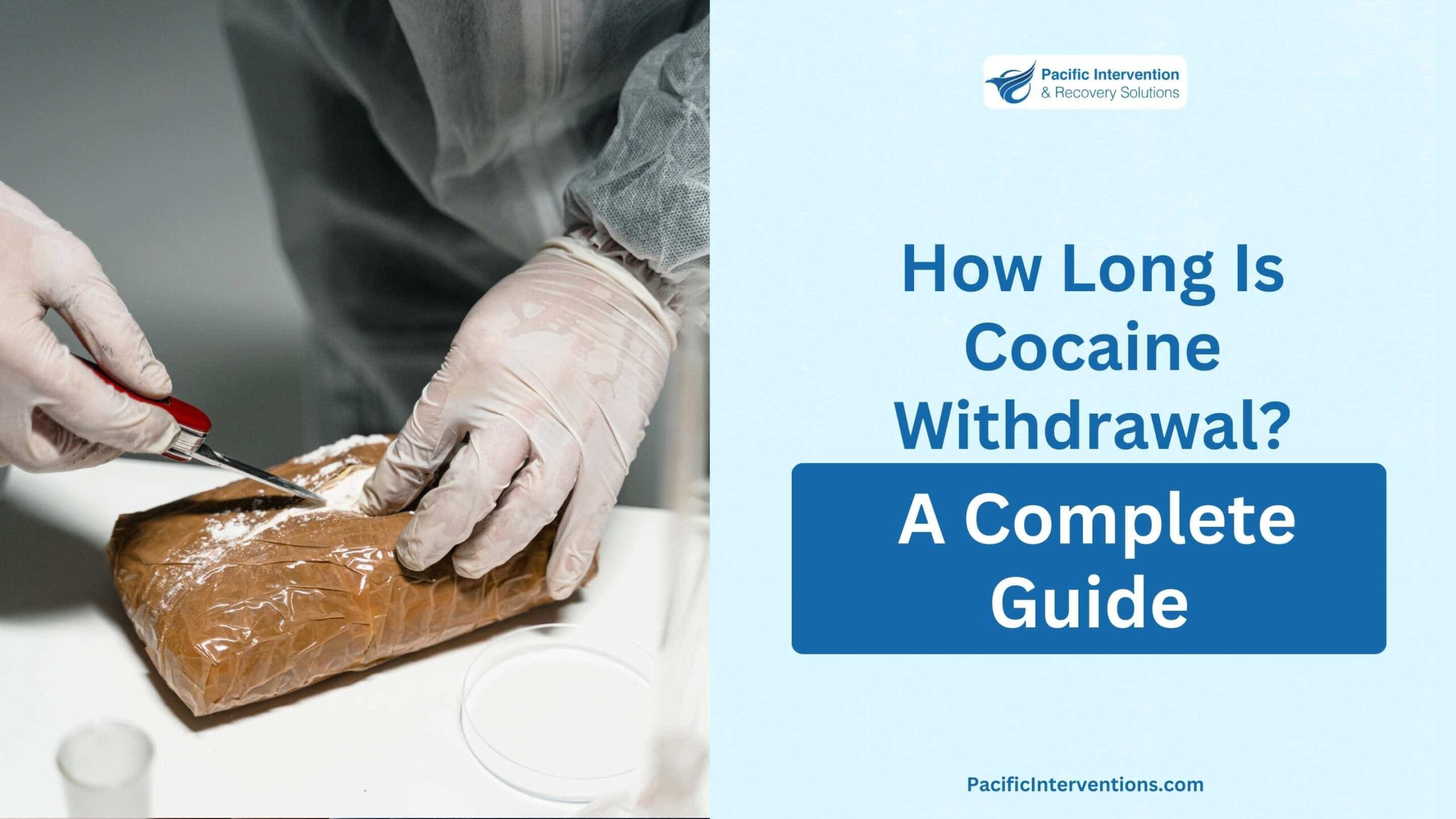Cocaine withdrawal puts people through a tough test when they try to beat their addiction to this strong stimulant. The path to getting better can be rough, with both body and mental symptoms hitting those who choose to quit. Knowing how long it takes and what happens during cocaine withdrawal is key for anyone thinking about treatment or helping a friend or family member through this hard time.
This guide takes a deep look at cocaine withdrawal, covering its causes and how it impacts the body. You’ll learn about the usual timeline of withdrawal symptoms, which can be different for everyone. Also, the article talks about the symptoms most people might face, like strong cravings and mood changes. By sharing this information, we want to help folks get ready for and handle the cocaine withdrawal process better.

What Is Cocaine Withdrawal?
Cocaine withdrawal starts when a person who has used cocaine cuts back or stops using it. This can begin even with some cocaine still in their body. It’s a tough process that impacts both physical and mental health.
People going through withdrawal might experience:
- Tiredness
- Loss of enjoyment
- Worries
- Crankiness
- Drowsiness
- Restlessness
- Suspicion
- Feeling down
- Hunger
- Strange, scary dreams
These effects can last for months after quitting long-term heavy use. Sometimes, withdrawal can make people think about ending their lives.

What Causes Cocaine Withdrawal?
Cocaine withdrawal happens because of drug dependence. This dependence grows when someone uses cocaine for a long time and starts to need it to function. How dependence forms can differ from one person to another, with genes playing a big part.
The main reason for withdrawal is how cocaine affects dopamine signals in the brain. Using cocaine boosts dopamine activity in brain areas linked to motivation and reward. This boost encourages continued drug use.
As time goes on, the brain adjusts to the extra dopamine, becoming less responsive to cocaine’s impacts. This adjustment causes users to need more and more of the drug to steer clear of withdrawal symptoms. When someone stops or cuts down on cocaine, their brain struggles to work without it, which brings on withdrawal symptoms.

How Does Cocaine Affect the Body?
Cocaine has a strong influence on the body and the central nervous system. This system, which includes the brain and spinal cord, manages essential functions like alertness, movement, memory, thoughts, speech, and learning. When cocaine gets into the body, it brings about significant changes in these functions.
The drug’s effects on the nervous system relate to how neurotransmitters are made. Cocaine boosts the production of dopamine, a brain chemical that creates feelings of joy and pleasure. This rise in dopamine levels affects different parts of the central nervous system, such as the limbic system, cerebral cortex, and brain stem.
The quick effects of using cocaine include:
- Constricted blood vessels
- Dilated pupils
- Increased body temperature
- Elevated heart rate
- High blood pressure

Cocaine Withdrawal Timeline
The cocaine withdrawal timeline can differ from one person to another based on things like how they’ve used the drug and their own unique traits. Usually, withdrawal symptoms start within a few hours to days after the last cocaine use. Some people might deal with these symptoms for weeks or even months.
Acute Withdrawal Phase:
This stage, often called the “crash,” goes on for one to two weeks. During this period, people might go through:
- Dysphoria and strong urges
- Sharp anxiety and restlessness
- Tiredness and low stamina
- Sleeplessness, even when worn out
- Deep sadness, maybe even thoughts of ending one’s life
Post-acute withdrawal stage:
- Extreme tiredness and sleeping too much
- Big shifts in mood
- Eating more than usual
- Ongoing desire for the drug
Things that affect how long withdrawal lasts:
- Amount of cocaine used
- Duration of cocaine use
- Route of administration

Common Symptoms of Cocaine Withdrawal
Quitting cocaine can be tough, with effects that touch many parts of a person’s life. These effects start when someone stops using cocaine or runs out of it. The body, used to having cocaine around, has a hard time working without it.
Physical effects
People who stop using cocaine might feel various bodily discomforts. These can include:
- Muscle aches
- Nerve pain
- Tremors
- Chills
- Slower heartbeat
- Eating more and gaining weight
- Mental effects
Stopping cocaine use can have a significant impact on a person’s mind. Common effects include:
- Feeling down and blue
- Nervousness and being annoyed
- Fidgeting and unease
- Strong urges to use cocaine
- Thoughts of ending one’s life (in some cases)
- Hostile behavior and unreasonable suspicion
Brain-Related Symptoms
Quitting cocaine can also mess with how your brain works.
- Trouble focusing
- Slow thoughts
- Forgetting things
- Less mental flexibility
- Struggling to speak and remember things
Remember that these symptoms get better after seven to ten days, even though they can be upsetting. But cravings might come and go for a while after that. How bad the withdrawal symptoms are and how long they last can change depending on things like how much cocaine someone uses, how often they use it, and their own personal makeup.
In Summary
To navigate the recovery process, you need to understand the ins and outs of cocaine withdrawal. The journey from addiction to sobriety has an impact on both the body and mind. Symptoms can range from physical discomfort to mental distress. Knowing what’s coming during this tough time can help people and their support systems prepare for what lies ahead.
Though quitting can be scary, remember that getting better is possible. With a doctor’s help and backing, people can handle their symptoms and work to live without drugs. The road to recovery isn’t easy, but beating cocaine addiction has huge benefits. It gives you a chance to fix relationships, get healthier, and take charge of your life again.
FAQs
1. What are the common symptoms of cocaine withdrawal?
Common symptoms of cocaine withdrawal include depression, tiredness, anxiety, mood swings, increased appetite, and strong cravings for cocaine. Other effects may involve muscle aches, restlessness, and difficulties with concentration.
2. How long does cocaine withdrawal typically last?
Cocaine withdrawal symptoms usually start within a few hours to days after the last use and can last from one to two weeks during the acute withdrawal phase, followed by a post-acute withdrawal stage that may last for weeks or even months.
3. What factors influence the duration and severity of cocaine withdrawal?
The duration and severity of cocaine withdrawal can be influenced by factors such as the amount of cocaine used, the duration and frequency of use, the method of administration, and individual differences in physiology and genetics.





